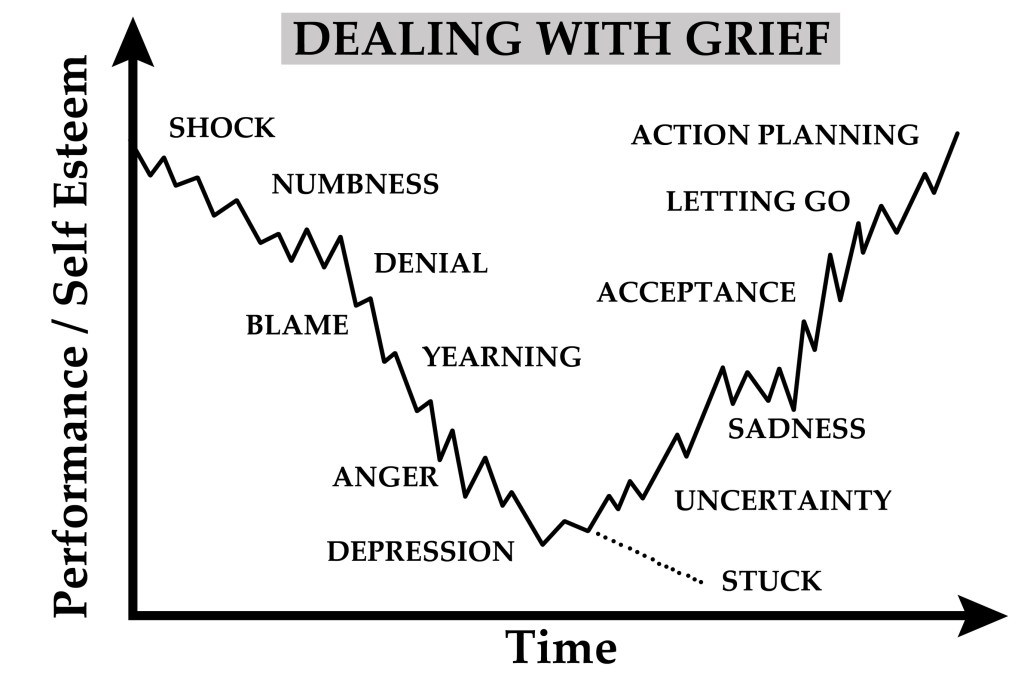Dealing With Grief
Grief is a collection of feelings that usually takes over the heart and mind of a person who has been affected by a great trauma, such as the death of a loved one. The different feelings produced can be overwhelming and can cause the afflicted person to be unable to carry on with their normal activities (work, socializing, hobbies, etc.) for a period of time that may last between days and years.

Psychologists disagree about whether or not people move through stages of different feelings and behaviors when dealing with grief, or whether they simply make gradual changes in the way they deal with traumatic events. However, experts agree that most people experience many of the same feelings in a specific order.
First, the shock of an event like a death in the family can be too much to deal with all at once. People can go numb, and seem to ignore, or be pretending to be unaffected by, the event. Some may even enter a period of denial, acting like they don’t believe it happened.
When they do start to allow the truth to affect them, they may become focused on blaming someone or something else, feel yearning (a desire to go back to the past, before the event happened), or even feel strong feelings of anger at the event. When they realize that their actions cannot change the event, they may feel helpless and fall into an extended period of intense depression. Many people can become stuck for a long time in these feelings and may be unable to function at all in their day-today lives.
Uncertainty about the future and less-severe sadness may follow as depression lifts. As time passes, people are able to finally accept that the event has happened and produced permanent changes in their lives, and they begin to let go of their focus on the past and finally take action to deal with the future.
Dealing with grief is something that each and every one of us will have to go through at some stage of our lives. When something traumatic happens to you or someone you know, you can understand that it takes time and working through different feelings in order to deal with it. Processing these feelings and moving through them can be easier and faster if you have someone to talk to, like a friend or family member, or a professional therapist or psychologist. If someone you know if affected by grief, you can understand and accept that their behavior will change over time and that they might need your support in getting through the different parts of dealing with their grief.
Check out our interesting facts about Freud!





